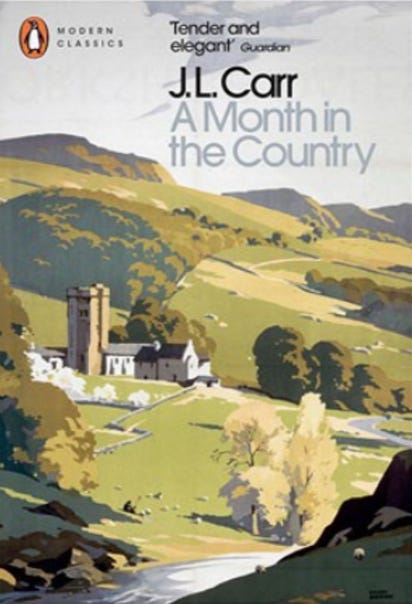Book Review // A Month in the Country, J.L. Carr [1980]
A Month in the Country1 is a novel of reminiscence. It takes place just after the First World War in the pastoral Yorkshire, and chronicles time spent in the country restoring a medieval mural, and the constellation of relationships that emerged, most notably that of a grave-scout camped just beyond the walls of the parish.
There is a two-fold distance evoked in these pages - one of the immediate aftermath of a traumatic war and the dissolution of a marriage, during which the events of the novel take place, and another, more distant reflection of this time. What results is a layered nesting of memory, cast across the century, where latent trauma transfers to a wistful nostalgia.
A trick of memory is its singularity and one might go so far as to define memory as the capacity for singular reflection at variable distance, which of course never ceases. Regardless, what Carr accomplishes is nothing short of anesthetic to melancholy.
I never exchanged a word [with him]. He has no significance at all in what happened during my stay in Oxgodby. As far as I’m concerned, he might just as well have gone round the bend and died. But that goes for most of us, doesn’t it? We look blankly at each other. Here I am, here you are. What are we doing here? What do you suppose it’s all about? Let’s dream on. Yes, that’s my Dad and Mum over there on the piano top. My eldest boy is on the mantelpiece. That cushion cover was embroidered by my cousin Sarah only a month before she passed on. I go to work at eight and come home at five-thirty. When I retire they’ll give me a clock - with my name engraved on the back. Now you know all about me. Go away: I’ve forgotten you already.
This from a man of trench warfare.
Carr, J. L. A Month in the Country. NYRB Classics, 2001.



